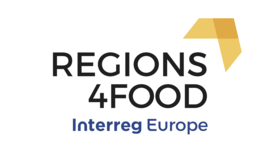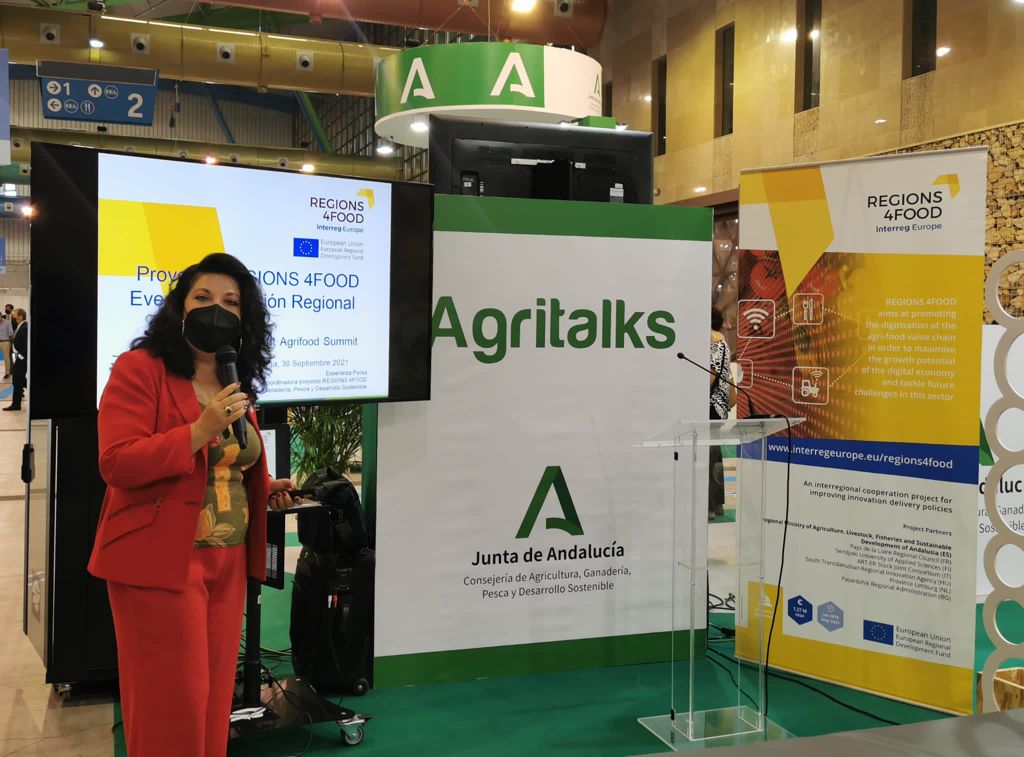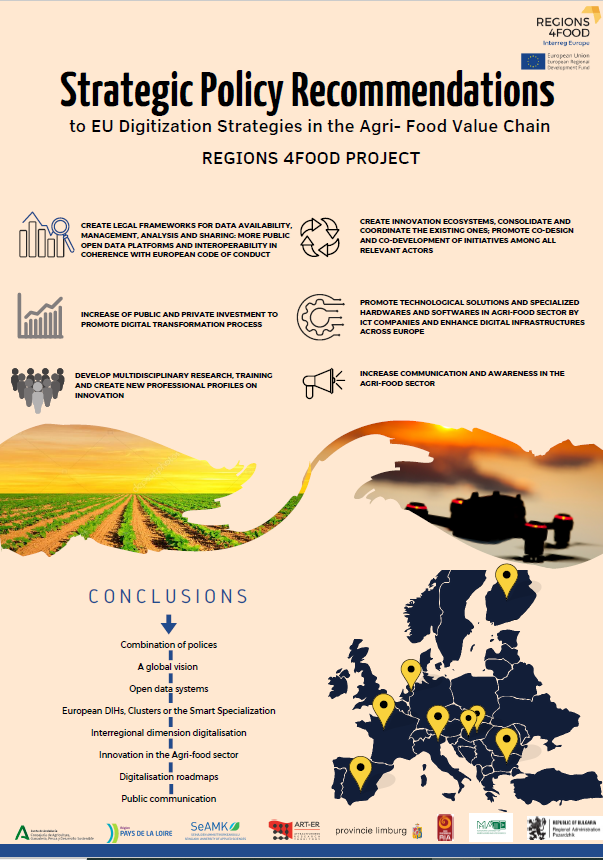The Regions 4Food project is moving towards the end of the first phase of activity.
In 2021 the Action Plans aiming to boost the digital transformation process of the agri-food value chains in the involved regions be developed and monitored.
The last six months of the project were dedicated to one of the core activities of Interreg Europe projects, the peer review one: each region has prepared a draft Action Plan, then asked the regions owners of the good practices included for a critical reading and comparison with respect to the points envisaged.
In this process, the partners were supported by local stakeholders and experts, who made a decisive contribution to the more precise and effective definition of the envisaged measures, enriching the plans with points of view and new perspectives.
The good practices made available by the Emilia-Romagna partner, catched the interest of most partner regions: from the regional Clust-ER scheme to the S3 Forums, the proposed practices inspired the action plans of the other regions, and this is certainly a positive sign and confirmation of how much the so far pursued policies have a good degree of innovation and replicability potential. Similarly, the Emilia-Romagna action plan has significantly benefited from the successful experiences presented by the partners.
The Emilia-Romagna regional innovation ecosystem has been involved by ART-ER in this phase of the project, making regional experts available for bilateral meetings with partners and starting fruitful discussions.
Representatives from the regional Agrifood Clust-ER participated in most of the meetings held between July and October 2020 and, in addition to recognizing the great value of the comparison between the regions on this topic, which is so crucial nowadays, also given the historical situation, helped us to identify the fundamental common aspects found in the Action Plans reviewed
The first one is certainly the capacity to implement solutions: it is correct to include the importance of the quadruple helix in innovation processes, but it is even more so to be able to attract and convey resources and activate concrete actions on topics of interest.
The second one is education: the digital transformation challenge calls for brand new professionals throughout the supply chain, who know how to read and interpret data produced by the systems. This is an issue that does not only affect the agri-food sector: according to a research made by the European Commission, in the short term, 9 out of 10 jobs will require digital skills.
Also, it is necessary to support the generational transition (which is already being done in Emilia-Romagna with some support initiatives addressing young farmers), to translate this into measures and tenders, combining the Regional Development Funds with the European Social Fund resources.
Third point: complementarity of competences. Innovation requires contamination, interaction between figures with different skills. It is necessary to integrate skills in the framework of the Digital Innovation Hubs, which act as innovation drivers in the territories, to then be integrated into a more European level discourse.
Finally, they underline the importance of creating accompanying frameworks towards digital transformation for companies and small farmers, namely physical places where the most advanced techniques can be experienced and familiarized with, and virtual places that became reference points, reliable sources of safe information, an idea at the basis of the regional network of demo-farms that could be born in Emilia-Romagna.






